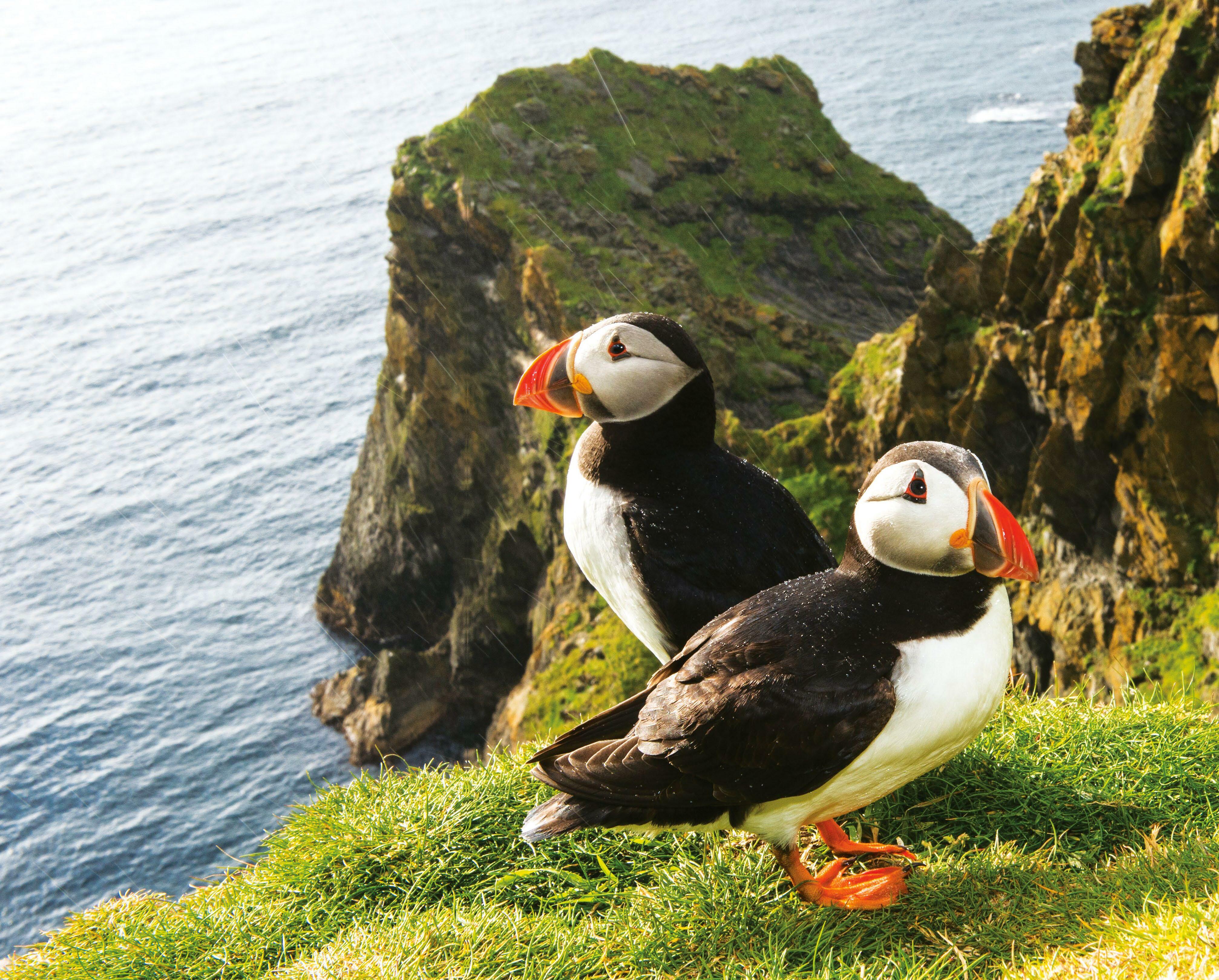WILD ISLES
The Week Junior Science+Nature UK
|Issue 60
Are you prepared for an encounter with Britain’s unique and amazing wildlife?
-

You don’t need to travel to the Serengeti in Africa or the Amazon rainforest in South America to find wildlife adventures. The British Isles are packed with wild treasures to discover. For example, the UK is home to more than 4,000 species of beetle and around 60–70% of the world’s global gannet population. Did you know that Britain has 700 square kilometres of rainforest? That’s enough to fill about 98,000 football fields. They provide handy habitats for wildlife rarely seen in other parts of the country, such as the rare chequered skipper butterfly and hazel gloves fungus found in the rainforests of western Scotland.
The UK’s location makes it globally important, too, with coastal islands and clifftops a main stopover point for millions of migrating birds, offering ideal spots to rest and feed. One of the most popular and recognisable of these is the puffin.
These black-and-white coloured seabirds arrive in their thousands every springtime to breed.
However, you may also have heard that nature has disappeared in the UK more than anywhere else in the world. Over centuries of farming, hunting and other activities, humans have wiped out a lot of Britain’s native wildlife.
The UK’s landscape can no longer support the wide variety of creatures and plants that once lived here. More than one in seven native species face extinction and Britain has lost almost half its biodiversity (the variety of plants and animals living in a particular place). Despite this, the UK is still home to an incredible variety of animals and plants, from basking sharks swimming in the deep to birds of prey flying up high. So come with us on an exciting journey through these wild isles.
Denne historien er fra Issue 60-utgaven av The Week Junior Science+Nature UK.
Abonner på Magzter GOLD for å få tilgang til tusenvis av kuraterte premiumhistorier og over 9000 magasiner og aviser.
Allerede abonnent? Logg på
FLERE HISTORIER FRA The Week Junior Science+Nature UK

The Week Junior Science+Nature UK
FIGHTING THE FREEZE
Claire Karwowski uncovers nature's wildest ways of fighting the winter freeze.
6 mins
Christmas 2025
The Week Junior Science+Nature UK
Cook up bioplastic decorations
Make your own eco-friendly ornaments.
1 min
Christmas 2025

The Week Junior Science+Nature UK
Should we switch off Christmas lights?
They brighten up the festive season, but they can have a negative impact on the environment.
1 mins
Christmas 2025
The Week Junior Science+Nature UK
Three spectacular illuminations
Glow Wild, Wakehurst
1 min
Christmas 2025

The Week Junior Science+Nature UK
THE LAST DAYS OF POMPEII
For the first time, an immersive exhibition about the destruction of the ancient Roman city of Pompeii has opened in London.
1 min
Christmas 2025

The Week Junior Science+Nature UK
Wildlife watch
Jenny Ackland unveils a winter wonderland of natural delights this festive season.
1 mins
Christmas 2025
The Week Junior Science+Nature UK
Make Snow globes
Create the perfect Christmas gift.
1 min
Christmas 2025

The Week Junior Science+Nature UK
Maggie Aderin-Pocock
Meet the scientist \"blasting off into space\" at the Christmas Lectures.
3 mins
Christmas 2025
The Week Junior Science+Nature UK
Make vegan eggnog
Whip up a dairy-free festive winter warmer that is perfect for cold nights.
1 min
Christmas 2025

The Week Junior Science+Nature UK
Octopuses
Meet the colour-changing, shape-shifting, fortune-telling aliens of the seas.
2 mins
Christmas 2025
Translate
Change font size

